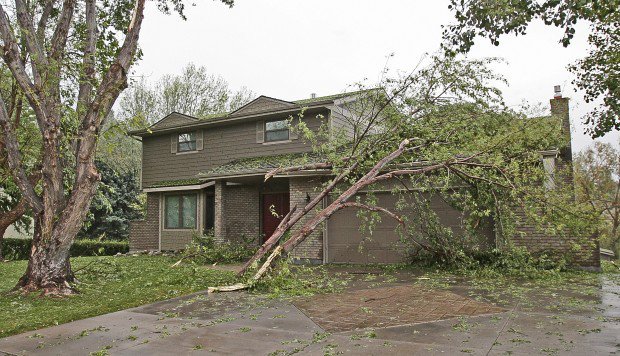Major summer storms are incredibly vigorous and dangerous. From a hurricane to a tornado, these storms can cause severe damage to homes, landscaping, commercial properties and anything that lies in their path — potentially endangering you and your loved ones.
Make Lists
Prior to a major summer storm, you will want to make several lists, starting with a list of everything you need to do to get ready for any possible scenario. Check things off the list as you complete them:
- Take a look at your first-aid kit. If you don’t have one, you’ll need to put one together.
- Look for all of your flashlights, LED lanterns, or battery-operated light devices that you can use during the storm should the power go out. If you don’t have an LED lantern or some long-lasting flashlights, add those to your list. Do not use candles during a storm. It’s not safe to burn candles for as long as you’d need to burn them during a power outage. Check on your supply of batteries, especially the kind you’d need to power your flashlights or lanterns. Don’t forget to include cellphone chargers and charging cables. Make sure that your chargers are fully charged before you lose power.
- Make a list of medications every member of your family takes. Include the number of refills that remain, the date of the most recent refill, and their doctor’s phone number. Plan to have a minimum seven-day supply of all medications. Don’t forget to include eyeglasses, contact lenses, and dentures, as well.
- Make a list of all of your important phone numbers. Include the insurance company, family doctors, neighbors, friends, and extended family. You should also include the phone number of your bank, bank branches, your community emergency response office, Federal Emergency Management Agency, the Red Cross, and other agencies that may offer assistance after the storm.
- Gather vital records such as your insurance policies, property deeds, Social Security cards, birth certificates, health records, medical insurance information, and other legal or property ownership documents.
- Check your pantry and gather any non-perishable food. You’ll want to have items that don’t require refrigeration after they’re opened. Make a list of everything you’ll need, including a minimum of 3 gallons of water for each family member — to last for three days. Stock up on supplies each time you grocery shop so you don’t have to go shopping as the storm approaches.
- Don’t forget about practical supplies like paper plates, utensils, towels, hand sanitizer, toothbrushes, toothpaste, etc.
- Make sure you’ve got a supply of food and water for babies and pets. Find a safe place to take pets if you’re forced to evacuate and you can’t take pets to a shelter.
- If you don’t have an emergency weather radio that can run on batteries, solar power, or a hand crank, think about buying one. An alternative is to download phone apps including some from NOAA and the National Hurricane Center, and Red Cross Emergency.
Things to Do as the Storm Approaches
- If you have a propane tank, turn the gas off when a warning is issued.
- Turn the refrigerator and freezer to their coldest setting. A well-stocked refrigerator will stay colder than an emptier one. Be sure to unplug it before the storm intensifies.
- Unplug all other electrical appliances, especially anything that you have in a basement — if flooding is likely.
- Find out where the emergency shelters are, and where the emergency evacuation routes are. Map the routes out so you can memorize them ahead of time. Sign up for local text message alerts. No matter where you are, you’ll receive valuable information quickly and efficiently. Fill your car with gas as soon as the National Weather Service issues a major storm watch.
- Go to an ATM or your bank to get enough cash, if there are widespread power outages, it’s always smart to have cash on hand.
- Have blankets and pillows so everyone can stick together. Add playing cards and board games to your emergency readiness kit. You’ll have an easier time waiting out the storm if the kids have things to occupy them.
- Most importantly, heed the advice of your community emergency response system and the National Weather Service. The extent to which you’re prepared before the weather gets bad will determine how easily you make it through the storm. It will also help you after the storm as you begin to assess the damage.
Author bio: Bill Robinson is Vice President of Operations for DKI Commercial Solutions, where he oversees disaster relief operations for commercial large loss in the United States. DKI Services is a disaster remediation and restoration company that offers residential and commercial buildings emergency restorations. A few of its services include water damage repair and fire damage restoration. Some of Robinson’s efforts have been nationally and locally recognized in the media.




